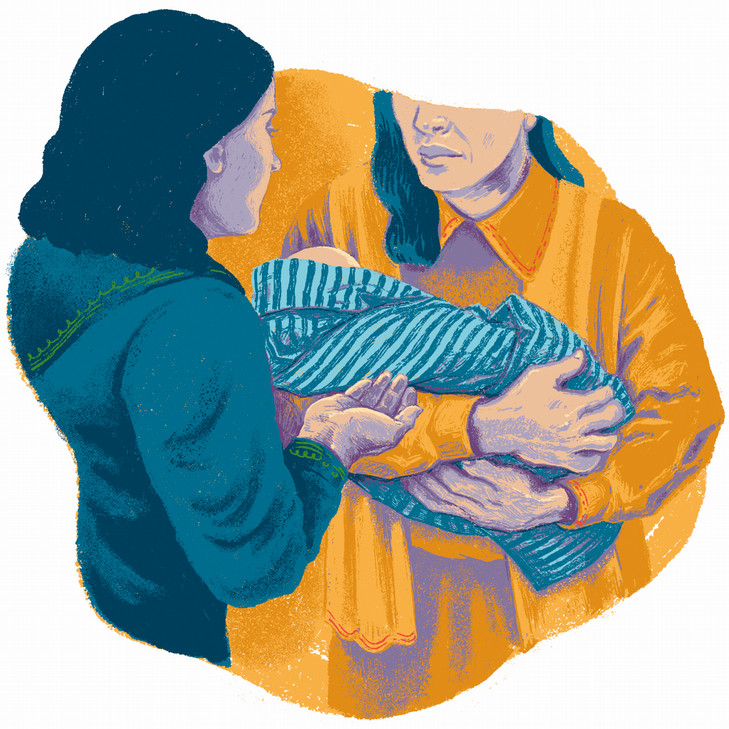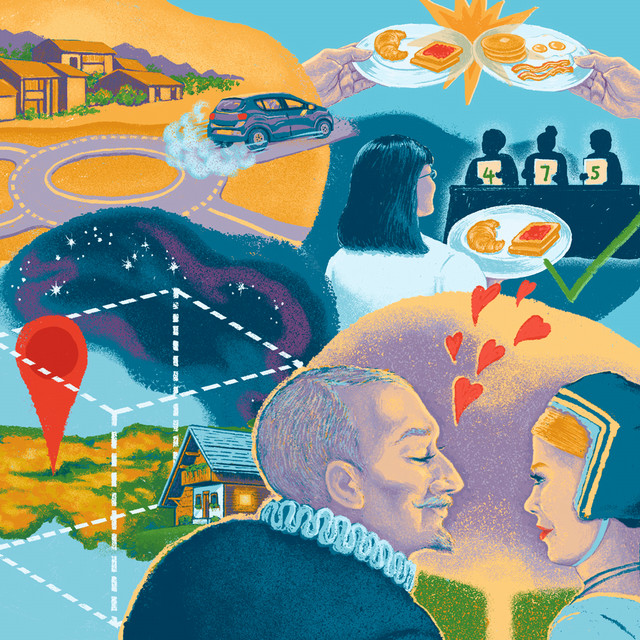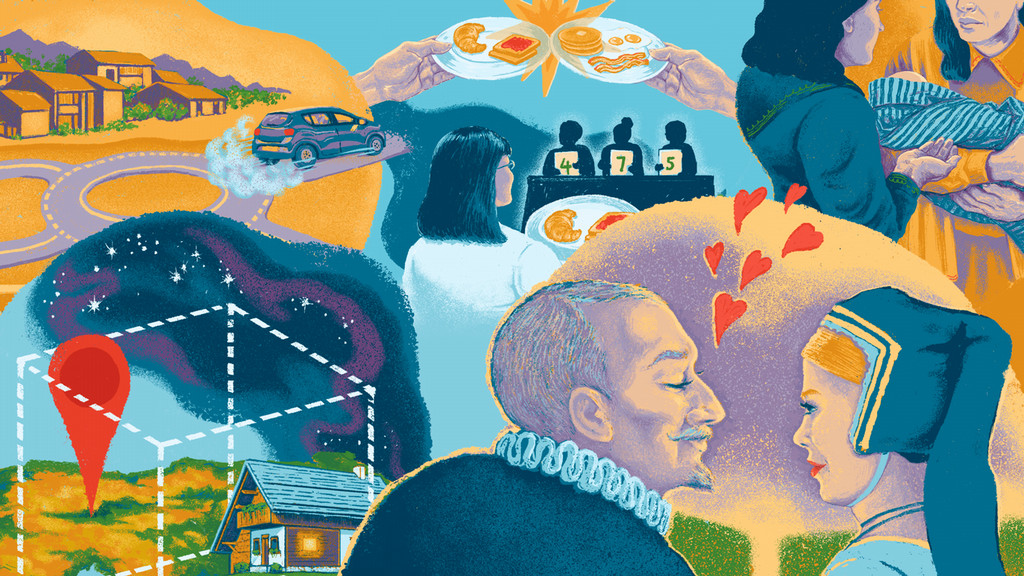A simple turn of phrase in one language is sometimes surprisingly complex to capture in another. Words in every language carry connotations and cultural weight specific to their context. “No way around this, I’m afraid,” said Anthony Russell, a professor who often does translations. “The Italian saying traduttore traditore (‘the translator is a traitor’) seems inescapable.”
Last fall, the university’s Humanities Center launched a program called the Translators Initiative. The idea was to highlight the surprising amount of translation work being done on campus and connect translators to one another. We asked faculty who do translation to describe a challenge they faced. Here’s what they offered:
“rotonda”
SHARON FELDMAN (Spanish and Catalan studies)
Translated work: El cos més bonic que s’haurà trobat mai en aquest lloc (The Nicest Body Ever Seen Around These Parts), by Josep Maria Miró (2020)

The Catalan word rotonda refers to a central feature of the play’s physical and symbolic geography: a circular junction on the margins of a small rural village. Working with an off-Broadway company, I found myself drawn into a discussion about how to translate this simple word. My first instinct was “roundabout,” but the production team worried that a New York audience might stumble over it. Another option, “traffic circle,” felt flat and bureaucratic, lacking the resonance of rotonda in the play, where the term evokes a place defined by passing through rather than arriving. In the end, I stood my ground. I was gratified when I returned to Richmond and heard my GPS instruct me to “take the second right at the roundabout.” The word — and the fleeting, in-between space it names — could travel farther than I had imagined.
“prostor”
BRIAN HENRY (English and creative writing)
Translated work: Various

Prostor always slows me down when translating Slovenian poems. Its most common meanings are “space,” “room,” and “place,” but it can also mean “site,” “area,” and “locus.” The word covers a lot of ground, from the immense and abstract to the highly specific. In translation, context is key, but the precise meaning of prostor in lyric poems is not always clear. Slovenian doesn’t use definite or indefinite articles, so I have to decide if the poet is referring to “a space” or “the space” (or just “space”), “a room” or “the room,” “a place” or “the place,” and so on.
“Je voudrais bien”
ANTHONY RUSSELL (English and Italian studies)
Translated work: A sonnet by Pierre de Ronsard (c. 1553)

The French phrase expresses the speaker’s desire to make love with his beloved. It means something like “I would very much desire.” Its verb is the conditional form of “vouloir,” meaning “to want” or “to will.” But “I would very much desire” sounds formal and tentative, whereas the phrase is concise and assertive and lyrical all at once. “I would really like?” Too prosaically listless. “I really want?” Too pushy and not conditional. “I really wish?” Too removed from the forcefulness of wanting. The fact is that I have not found any satisfactory way of translating this seemingly simple expression.
“competition”
KARINA VÁZQUEZ (Latin American, Latino, and Iberian studies)
Translated work: Darkroom: A Memoir in Black and White (Cuarto Oscura), by Lila Quintero Weaver (2012)

Food plays a crucial role in Darkroom, a memoir about emigrating from Argentina to Alabama in 1961. Food can connect the children of immigrants to their cultural heritage, but it can also underscore feelings of alienation, especially in settings like schools, where social identity is built on symbols of belonging. The term “breakfast competition,” used by a teacher, can be translated into Spanish literally as competencia de desayunos, but we used concurso de desayunos after collaborating with the author. Concurso specifically refers to a competition evaluated by a jury. This aligns with the actions in the chapter. In contrast, competencia implies a direct rivalry among participants. We prioritized the cultural and idiomatic resonance.
“besa”
LIDIA RADI (French and Italian studies)
Translated work: Non c’è dolcezza (No Sweetness), by Anilda Ibrahimi (2012)

Besa literally means “the promised word,” but it carries far greater weight. For centuries, it has been a sacred code of honor deeply rooted in Albania’s history and culture. In the novel, a woman expecting her fourth daughter vows to give the child up for adoption to a friend who cannot have children. When she gives birth to a son, she honors her besa, despite the devastating consequences. In this context, besa cannot be rendered as a simple “promise.” It must carry the weight of destiny, sacrifice, and irreducible cultural meaning. Without this, a translation risks silencing the very core of the story.

